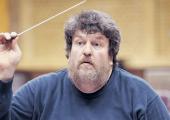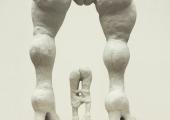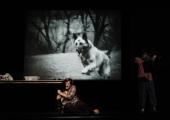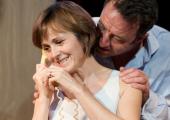Birmingham Contemporary Music Group, CBSO Centre, Birmingham



The latest exhibition from Beirut-born, sometime Turner Prize-nominee Mona Hatoum – best known for sending a camera through her inner tubes and projecting the results – explores themes of displacement and geographical and political tension. I know this because since I signed up to review it a fortnight ago, invites and reminders concerning this exhibition "exploring themes of displacement and geographical and political tension" have been hitting my mailbox with hectoring insistence.


Austere, elegant, impressive. Edwin Lutyens’s Whitehall Cenotaph is a thing of beauty, a monument that embodies permanence in the face of all that is impermanent, and solidity in the face of all that is ephemeral. It’s an inspired decision to bring it indoors, for inside a hushed gallery, away from the rush of traffic and stripped of its flags and sculpted wreathes, Lutyens’s memorial can at last be properly admired as a work of art.


A 70-minute song cycle for soprano and violin, the Kafka Fragments is the magnum opus (the irony of its miniature forms seems entirely deliberate) of György Kurtág, a composer known for the inscrutability of his music. His lines arrive at the ears fully armed, unwilling to surrender their meaning. A performance of the Fragments at the Tanglewood Music Festival in 2008 famously drove a musically literate audience from the room, so can Peter Sellars's staged interpretation really offer a more engaging experience? Up to a point.

Glaswegian James Dillon (b 1950) is one Britain's most critically acclaimed living composers. Early detours as a drunken and drug-taking wastrel gave way to what he calls "musical terrorism". By which he means his blistering career as one of the most intoxicating and uncompromising of the New Complexity school of composers. His music has won awards (an unprecedented three from the Royal Philharmonic Society) but few British establishment friends or commissions, which has forced him into almost permanent exile.

Camera-less photography isn’t, as some might think, a 20th-century invention, discovered by experimental Modernists such as Moholy-Nagy and Man Ray. Thomas Wedgwood, before the invention of the camera and at the very beginning of the 19th century, made paintings on glass and placed these in contact with pieces of paper and leather which had been rendered light sensitive with chemical treatments. Where the painted areas blocked the light, the image left its trace. Unfortunately, since Wedgwood lacked knowledge of how to fix the images, the results vanished almost as soon as they appeared.
The first phrase of the first piece by Georges Enescu - silken, expressive, rounded, breathed to perfection - established a very good case for Håkan Hardenberger being the greatest living trumpeter. The rest of his Wigmore Hall recital established a pretty equally watertight case against.

Adultery has had a good press recently. Websites such as meet-to-cheat.com, illicitencounters.com and lovinglinks.co.uk have been in the news, and statistics suggest that more of us are being unfaithful than ever before. But although adultery is a staple of farce and mainstream drama, there are few plays that deal with the subject with quite the unsettling ambiguity and disturbing depth that characterise Martin Crimp’s modernistic play, first performed in 2000 and now beautifully revived by the up-and-coming Amelia Nicholson.